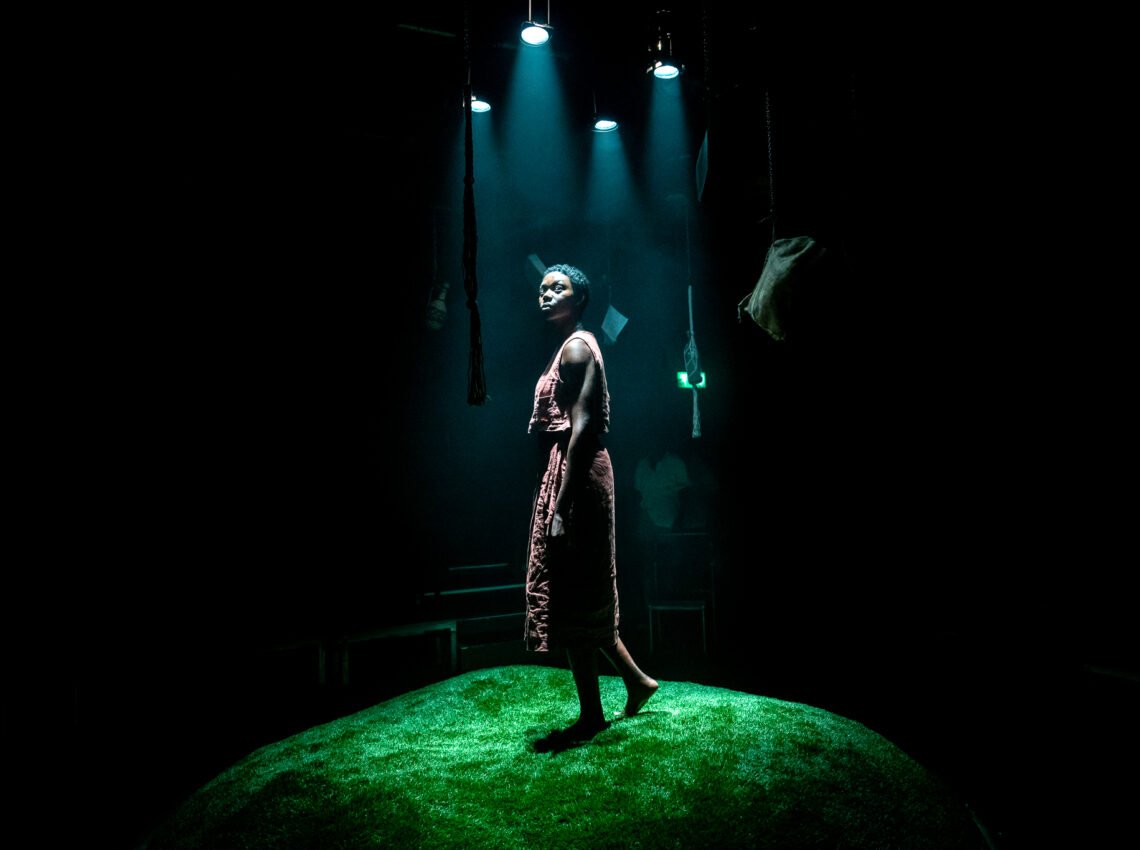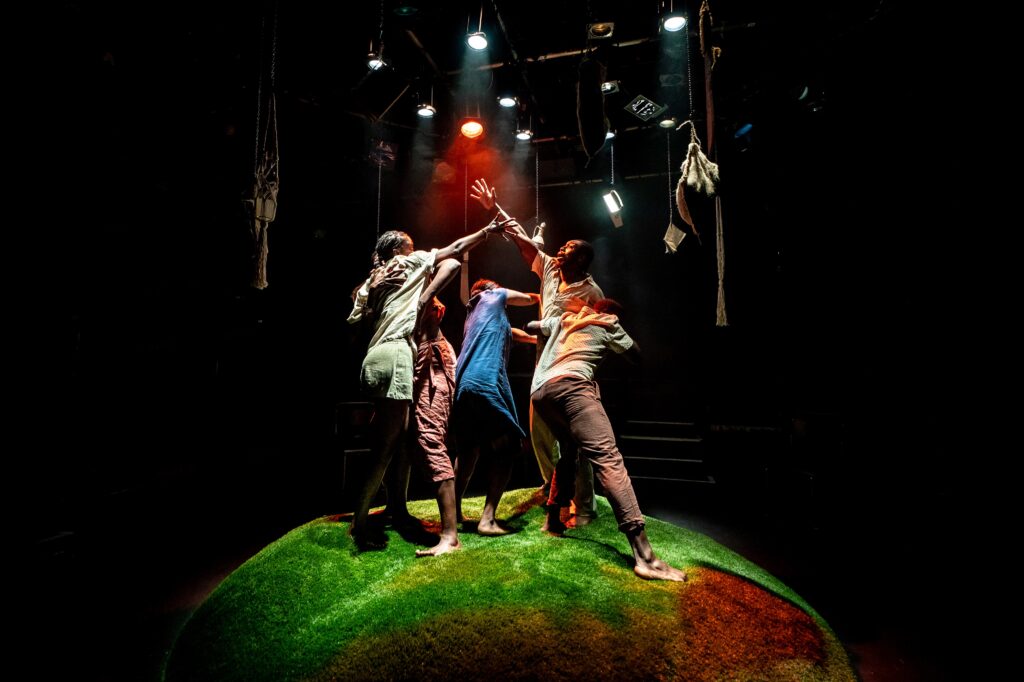‘Under The Kunde Tree’ is spotlighting the forgotten role of women in Cameroon’s War for freedom through theatre

Wars are not an easy subject to portray through the medium of theatre; being unable to rely on some of the visual identifiers that audiences associate with the topic can prove to limit.
However, in ‘Under The Kunde Tree,’ the underexplored history of the Cameroonian Independence War is dynamically tackled by merging the personal and the political.
In the play, we follow the main character Sara’s (Selina Jones) battle between her romantic wishes for Jean (Fode Simbo) and her contrarian father’s (Yinka Awoni) expectations, all in the brutal political climate of 1950s Cameroon. Some of the play’s most vital moments come from Sara’s sisterly relationship with Nadia (Amma-Afi Osei), oscillating between tenderness and hilarity. The cast is completed by writer Clarisse Makundul’s primarily silent yet powerful role. The five never leave the stage throughout the play, and a simple and poetic set design replicating a tree aids different narratives by providing prompts to varying stages of the story.
The fact that this is Clarisse Makundul’s debut play is awe-inspiring as she beautifully showcases intimate characters through her writing, alongside bold directing by Ebenezer Bamgboye. In an exclusive interview with GUAP, Makundu reveals how her grandmother’s history informed the play and her hopes for its future.

GUAP: How did ‘Under the Kunde Tree’ come to be?
CLARISSE: After my grandmother passed away a few years ago, I realized that, even though she practically raised me and I loved her, I didn’t know much about her. I wanted to know what life was like for her as a woman in her twenties during the Cameroonian Independence War in the 1950s, so she’s the reason I ended up writing this.
GUAP: Why was it necessary to center women in this story?
CLARISSE: When researching the war, I found out that the women took over when the men went underground. I needed to show that women played an essential part in the country’s liberation. It’s a fictional story, but it’s authentic. My dad lives in Cameroon, and when I’d be uncertain about something I was writing, I would ask him: “Can you go and ask the women in the village the true story” and that’s how the play developed.
GUAP: How does it feel to debut your first play?
CLARISSE: I initially became an actress as an escape as I was painfully extroverted, and even though I would always write, I never imagined myself writing a play or a book. But sometimes, you have to create opportunities for yourself, and that’s what I did. It was not easy, I don’t have a literature degree, and English isn’t even my first language. There were so many obstacles that I almost gave up. However, I met a dramaturg specializing in African stories, which ended up being the motivation I needed to keep going.
GUAP: What do you hope the audience gets from ‘Under The Kunde Tree’?
CLARISSE: I want this story to be heard. A few days ago, my dad told me that few people happened in the 1950s, even in Cameroon. People don’t talk about it. Theatre is a powerful platform, and I aim to use it to make these voices heard.
‘Under the Kunde Tree’ is playing at Southwark Playhouse until the 17th of June. Book tickets here.
Discover more from our Arts and Culture section here.




![ZINO VINCI’S ‘FILTHY & DISGUSTING’EP BRINGS YOU TO THE CORE OF THE ARTIST [@ZinoVinci]](https://guap.co/wp-content/uploads/2023/10/Zino-4.jpg)





![Remel London’s [@Remel_London] “Mainstream” is a must attend for upcoming presenters!](https://guap.co/wp-content/uploads/2017/02/REMEL-LONDON-FLYER-FINAL-YELLOW-COMPLETE-1.png)